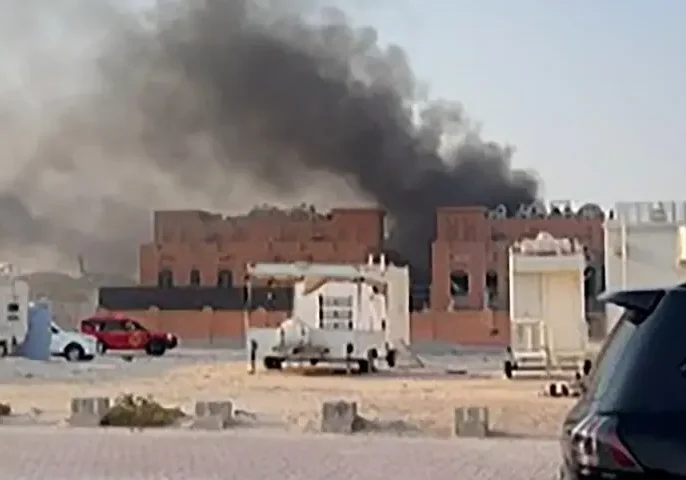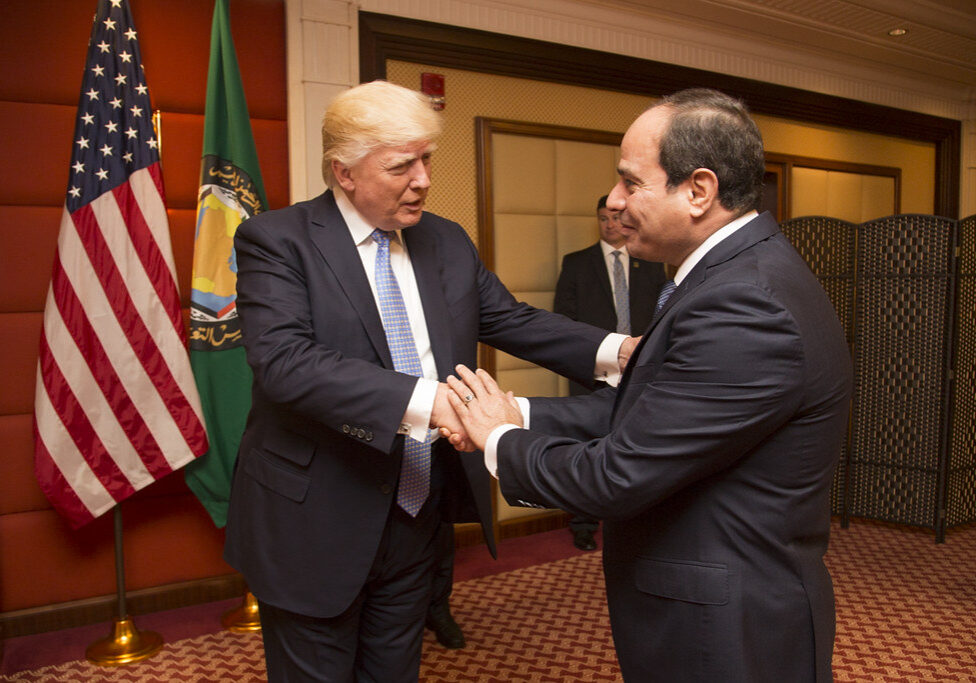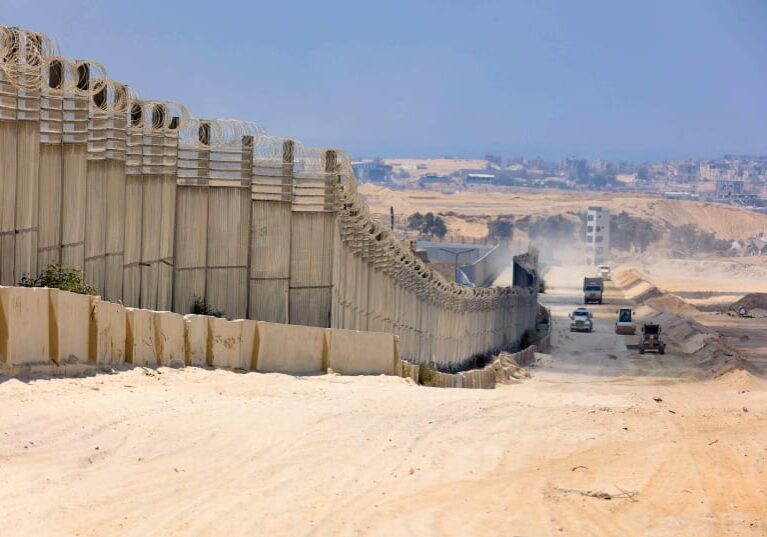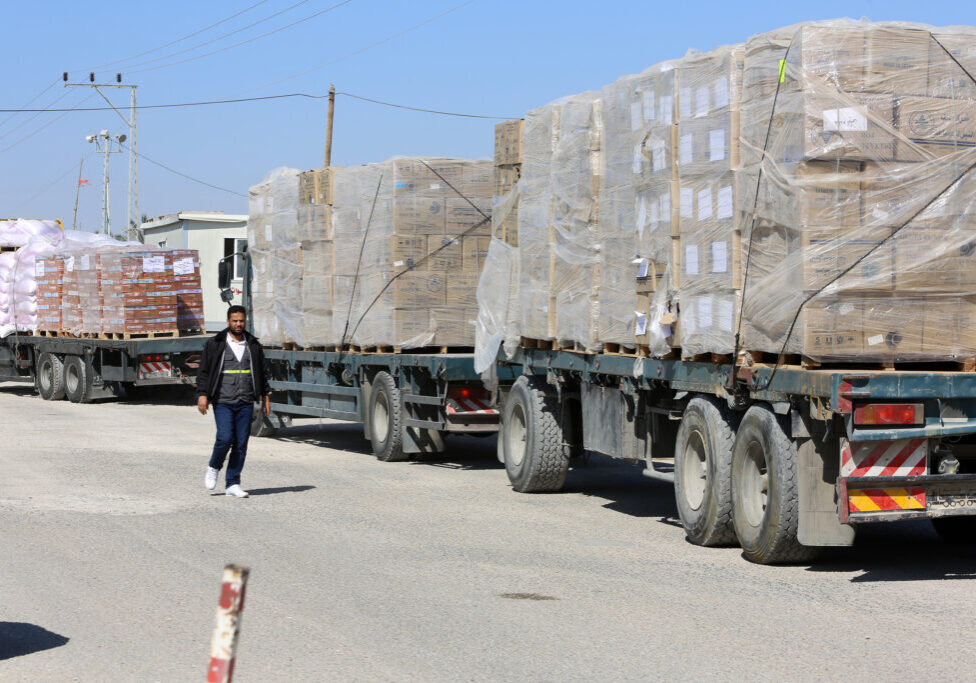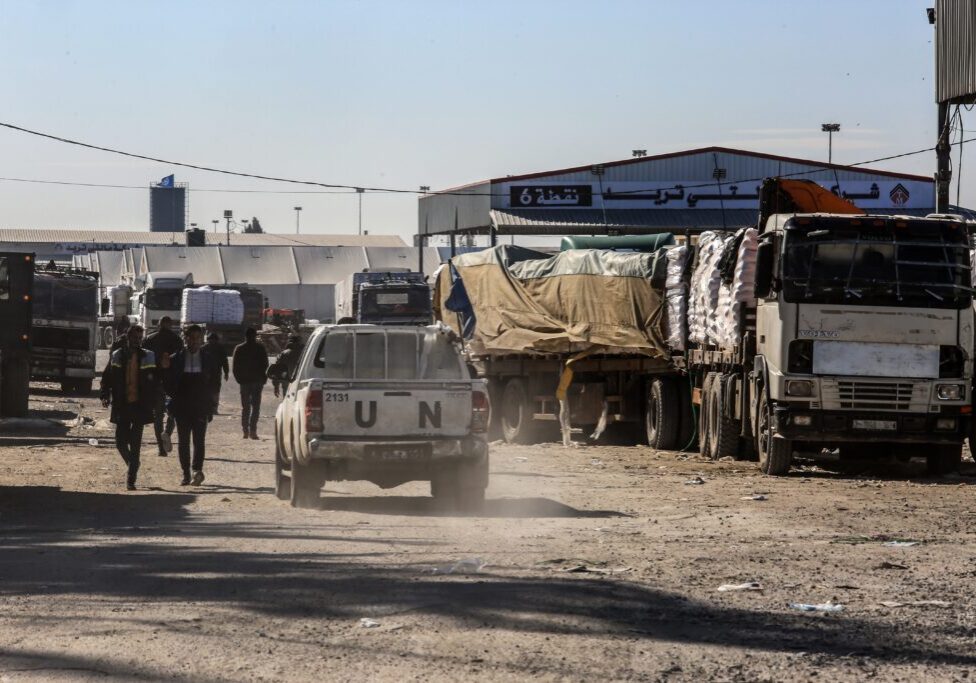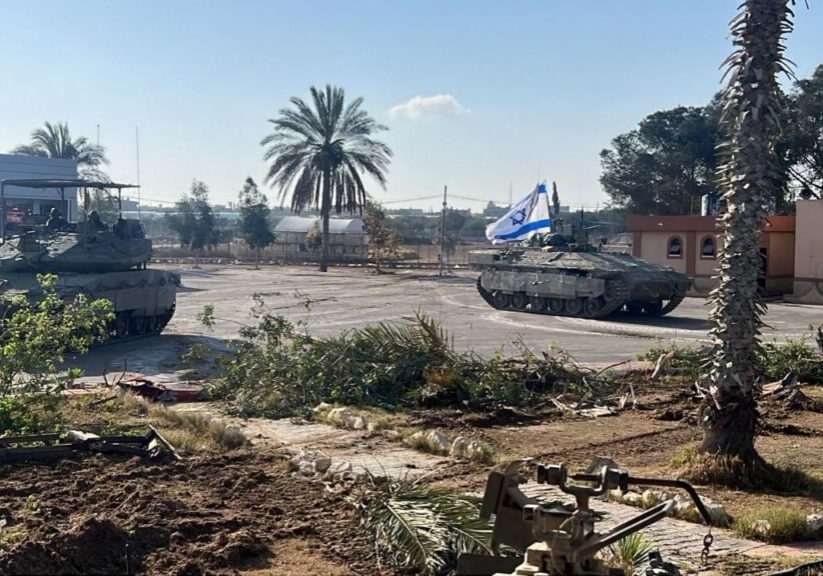Australia/Israel Review
Living with Big Brother
Aug 27, 2012 | Amotz Asa-El
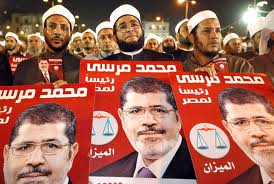
Israel and the New Egypt
Amotz Asa-El
In a typical Middle Eastern dynamic, what began with a hail of bullets soon produced political casualties, diplomatic fog, and strategic perplexity.
The physical fire originally erupted near the Rafah border crossing between the Sinai Desert and the Gaza Strip, when presumably Islamist terrorists ambushed and killed 16 Egyptian soldiers while they were breaking the Ramadan fast. The terrorists then commandeered from the Egyptian troops an armored personnel carrier (APC) and a truck, loaded them with dynamite, and stormed the nearest border crossing into Israel, Kerem Shalom, at the Gaza Strip’s southeastern corner, hoping to detonate the explosives near a big crowd.
The IDF, based on intelligence information, was ready for the attack. After the truck exploded at the border, it ordered civilians in nearby communities underground, let the APC penetrate two kilometers into Israel, and then hit it from the air and the ground, ultimately leaving all the terrorists dead. Responding the following morning to the night’s events, Chief of Staff Lt.-Gen. Benny Gantz said “a very big disaster” had been averted.
On the Egyptian side, at the same time, there was no self-congratulation.
News of the attack’s death toll shocked the Egyptian public, and sporadic speculation that it was somehow engineered by Israel convinced no one. The sight of 16 coffins draped in Egyptian flags was harsh, as was the tone of telecasters who demanded revenge while broadcasting the funerals on national TV.
The initial Egyptian response seemed designed to keep the affair strictly military: First, then-Defence Minister Mohammed Hussein Tantawi led the funerals from which President Mohammed Morsi remained conspicuously absent; then Morsi let Tantawi unleash an ambitious military campaign in the Sinai. In the interim, the President fired the governor of northern Sinai and the head of Military Intelligence, dismissals that seemed related directly and narrowly related to the attack outside Gaza. The dismissed Intelligence Chief, Maj.-Gen. Murad Muwaffi, admitted that information concerning an approaching attack had been received but was mishandled, confirming reports that Israel had shared with Egypt the information which formed the basis of its readiness when the terrorists arrived at Israel’s gates.
The removals at the same time of the heads of Military Police and the Presidential Guard could not be associated with the Gaza attack, but they were widely misinterpreted as responses to the two officials’ failure to arrange things so that Morsi would be able to safely attend the fallen soldiers’ funerals.
The following week, however, when Morsi fired Tantawi himself along with the army’s chief of staff and the commanders of the navy and the air force in addition to formally depriving the military of its special authorities – it suddenly became clear that while all eyes were turned to a single terror attack, Morsi had his eyes on a much broader picture.
Now there is general agreement among pundits that what Morsi did the week after the attack constitutes a “soft coup”.
On the face of it, the Egyptian Muslim Brotherhood took a mere five weeks to accomplish what took years for Turkey’s Islamists, whose takeover of the military involved mass arrests and controversial trials.
No one suggests that the swift removal of the pyramid’s head constitutes in itself an Islamist conquest of the Egyptian military. However, the swiftness of the action leaves no doubt concerning Morsi’s intentions and resolve, and raises doubts concerning the military’s will to resist him.
Morsi’s proposal to Tantawi, to serve on as a presidential adviser, is but a generous gesture to the man who has served as Hosni Mubarak’s defence minister for nearly two decades, and then as acting president during the transition to elected government.
In effect, Morsi has taken all the authority of which his opponents tried to deprive him, including the power to direct public policy, sign diplomatic treaties, and appoint the forum that will draft the new constitution. Meanwhile, the Islamist-dominated Upper House replaced some 50 senior editors in state-owned newspapers, evidently with Morsi’s inspiration. Reports of alleged Muslim Brotherhood censorship soon followed.
All these steps incidentally overlapped the anniversary of the officers’ coup that usurped the royal dynasty that had shepherded Egypt into its post-colonial era. Now the subsequent era, 60 years of de-facto military rule under Nasser, Sadat and Mubarak – has come to an end.
Morsi has so far avoided appointing card-carrying Muslim Brothers for the key portfolios of finance, foreign affairs, defence, and interior as well as the premiership itself – which he handed to little-known Hisham Qandil, an American-educated former water minister. Yet the apparent quest, to keep the Brotherhood sufficiently removed from day-to-day policy failures, has now become irrelevant; for better or for worse, Mohammed Morsi has assumed too many powers to be able to blame others for anything the Government of Egypt fails to deliver in future.
Back in Jerusalem, the developments in Egypt have been received with alarm.
Early impressions in the West, first that the so-called Facebook Generation protesters would succeed Mubarak, and then that the non-religious military would control an Islamist Egypt’s foreign policy, have been dashed. Now Islamist regimes reign simultaneously in Teheran, Ankara and Cairo for the first time in nearly a century.
However, to earn respect both locally and internationally, the Egyptian Islamists must demonstrate an ability to govern. Daily reports of lawlessness throughout the Nile Delta, as the previous era’s fear of police evaporated, are the new regime’s main enemy. Still, the burglaries, robberies, car thefts, cat-strikes, and anti-Christian violence which have become common in the triangle defined by Cairo, Alexandria and Port Said, pale in comparison with the challenge posed to the new regime by the situation in Sinai.
In the desert peninsula that sprawls east of the Suez Canal, Bedouin semi-nomads, angry at Cairo for having been evicted from the Red Sea coast, have taken to terror. The Bedouins – estimated at more than half of the Sinai’s 400,000 residents – once eked out a living in both grazing and tourism along the shores opposite Saudi Arabia. But then Mubarak began developing a multi-million-dollar Riviera for foreign tourists there, and the Bedouins were pushed into the mountains by bureaucrats who frequently looked down on them.
The consequent humiliation and despair led some Bedouins into al-Qaeda’s arms in an increasingly wild Sinai. Terror bombings from Taba in the north to Sharm el-Sheikh in the south ensued. And after Cairo’s authority crumbled, attacks on police stations proliferated as did smuggling of arms into Gaza and narcotics, prostitutes and illegal migrants into Israel.
This is also the background for no less than 15 attacks on Egypt’s gas pipeline into Jordan and Israel. Sinai is also where Morsi’s ability to govern is now being put to the test.
Following the terror attack, the Egyptians sent troops, light armour and APC’s to the northern Sinai. Meanwhile, four fighter bombers and several assault helicopters attacked targets west of the Gaza Strip reportedly killing 20 people, as well as conducting some arrests. Reports from Cairo said the Egyptians intended to systematically comb the Sinai and “cleanse” it of terrorists. However, Israeli military sources doubt the Egyptians will display the perseverance such an operation requires.
At the same time, Egyptian Interior Minister Ahmad Jamal hosted Bedouin tribal leaders, informed them that the army will be seeking terrorists, and asked for their cooperation. This was in northern Sinai. East of there, in Gaza, leaders of Hamas were told by Egyptian representatives that Cairo was seeking three leaders of the Army of Islam terror group that Egypt believes is related to attacks on its troops. The Egyptian demand, like the attack itself, was a great embarrassment for Hamas.
The reported Egyptian intention to collapse the many smuggling tunnels into Gaza from Sinai, if realised, will further subjugate the Strip’s Islamist government to Cairo’s direction, even if grudgingly. From Hamas’ viewpoint, that would still be progress compared with their status under Mubarak, who refused to recognise their rule, and insisted that the Palestinian Authority in the West Bank remained the legitimate Palestinian leadership.
From Israel’s point of view, all this military and political resolve are actually welcome, because a restoration of law and order in Sinai is a vital interest for Israel no less than for Egypt.
The question is what Morsi might have in mind for the more distant future. Remarks he has made repeatedly about wanting to “make changes” in the Camp David Accords have turned on red lights in Israel’s security establishment. Apparently, what he means is to undo the Sinai’s status as a demilitarised zone.
For now, most Egyptian military action in the Sinai was done in coordination with Israel as specified in the Camp David Accords, including the activation of planes and helicopters. However, during the insertion of tanks into the northern Sinai, Israel was reportedly not notified in advance, as required, only post-factum. Reports say Israel protested quietly, but Egypt responded by publicly denying any protests had been received.
At the moment, all eyes are focused on the Egyptian action against the insurgents who challenge Cairo in the Sinai. However, judging by this month’s precedents, President Morsi might be looking beyond immediate events – perhaps for a way to further deplete an already bruised peace agreement with Israel. This is despite the fact that, currently, the Islamist who 30 years ago founded his village’s Anti-Zionist Committee is being compelled to fight a common enemy in Sinai shoulder-to-shoulder with the Jewish State.
Tags: Egypt

